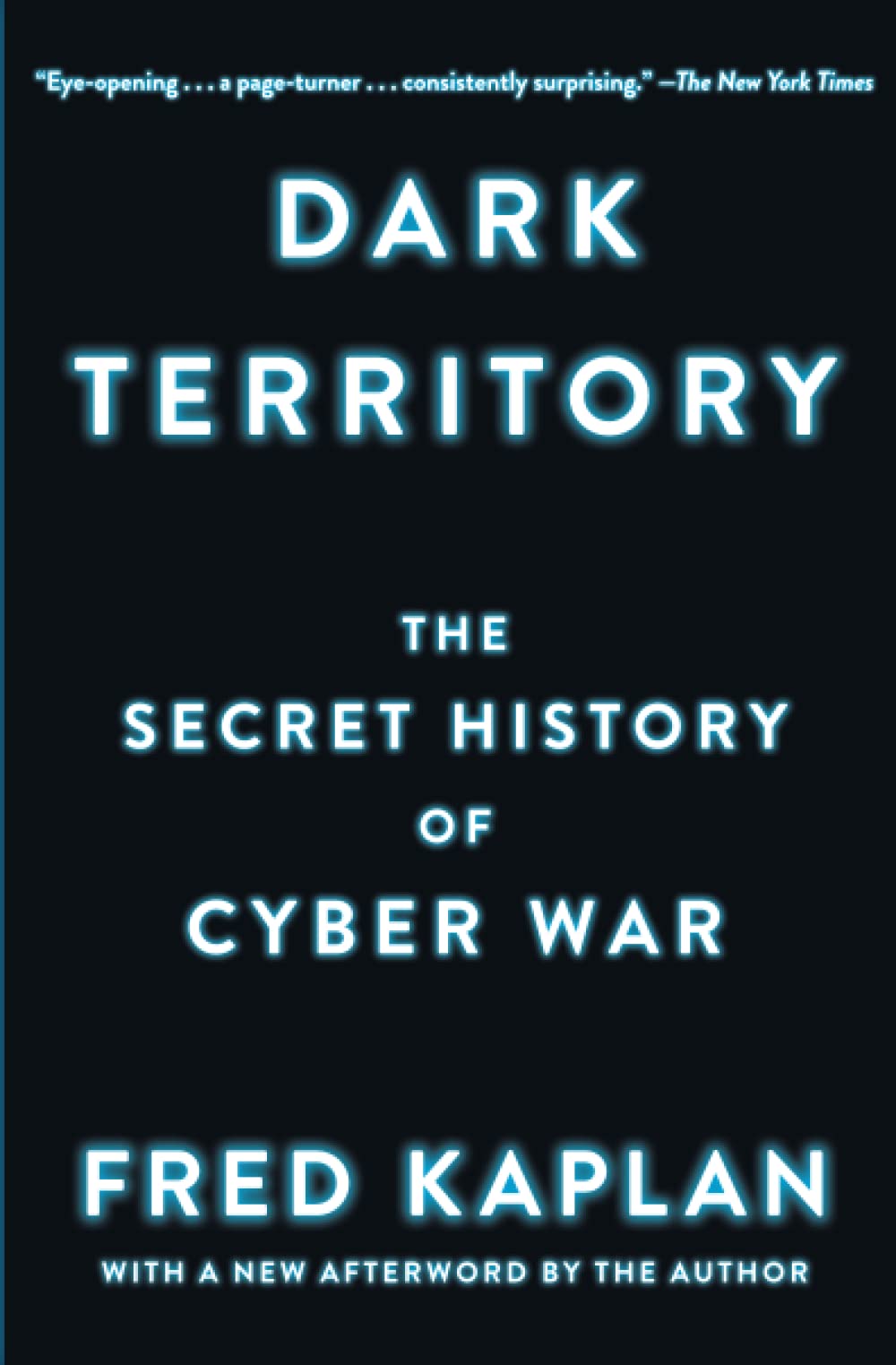If you purchase this book through this link, Amazon will donate money back to Key Terrain Cyber.
In “Dark Territory: The Secret History of Cyber War,” Fred Kaplan invites readers on a captivating journey into the secretive world of cyber warfare, where lines between offense and defense blur, and the rules of engagement are constantly being rewritten. With meticulous research and an engaging narrative style, Kaplan delves into the untold stories of cyber conflict, revealing a history that is as fascinating as it is alarming.
Kaplan’s masterful storytelling effortlessly weaves together the technical intricacies of cyber operations with the political, military, and human dimensions. He chronicles the birth of cyber warfare from its early stages, taking us through key events, including the Stuxnet attack on Iran’s nuclear facilities and the challenges faced by the U.S. government in navigating the uncharted waters of digital conflict. By giving life to the individuals behind the scenes – hackers, policymakers, and cybersecurity experts – the author humanizes the complex landscape of cyber warfare, making it relatable to readers from various backgrounds.
One of the book’s standout strengths is its exploration of the inherent tensions between national security imperatives and individual privacy rights. Kaplan delves into the ethical and legal dilemmas that arise when governments exploit vulnerabilities in software for their own purposes, often at the expense of citizens’ digital security. This theme resonates strongly in an age where debates about privacy and surveillance are increasingly pressing.
“Dark Territory” is a testament to Kaplan’s ability to break down complex technical concepts and make them accessible to a broad audience. While some sections might still pose a challenge to readers unfamiliar with cybersecurity terminology, the author’s clear explanations ensure that readers without a technical background can still grasp the core ideas and implications.
Moreover, the book offers valuable insights into the geopolitics of cyber warfare, illustrating how nations have harnessed digital tools for purposes beyond traditional military conflict. Kaplan provides historical context for some of the most significant cyber incidents, helping readers understand the motivations and repercussions of these actions on a global scale.
However, it’s worth noting that “Dark Territory” primarily focuses on the early years of cyber warfare up to its publication date in 2016. As the field has continued to evolve since then, some of the information might be dated, and readers seeking the latest developments in cyber warfare may need to supplement their reading with more recent sources.
In conclusion, “Dark Territory: The Secret History of Cyber War” is a thought-provoking and engaging exploration of the clandestine world of cyber warfare. Fred Kaplan’s adept storytelling and in-depth research provide readers with a comprehensive understanding of the challenges, successes, and ethical dilemmas that characterize this new frontier of conflict. The book is a must-read for anyone interested in the intersection of technology, security, and international relations, offering a rare glimpse into the shadowy realm of digital espionage and warfare.
This site is free for everyone to learn about information warfare, connect with mentors, and seek the high ground! Unfortunately operating the site is not free and your donations are appreciated to keep KTC up and running. Even a five or ten dollar donation helps.







